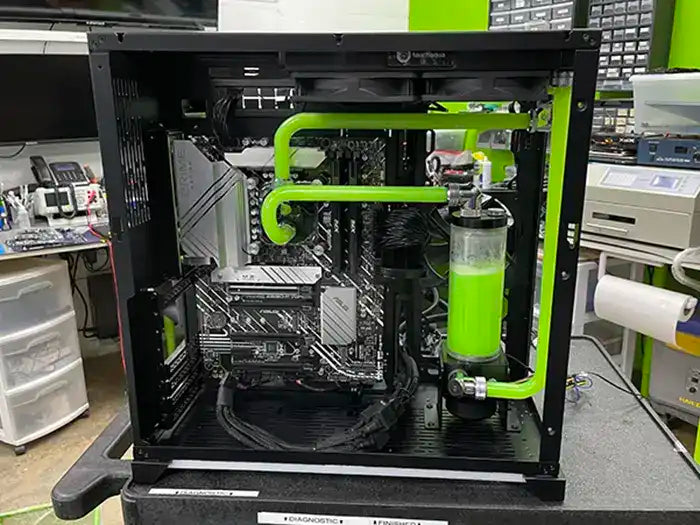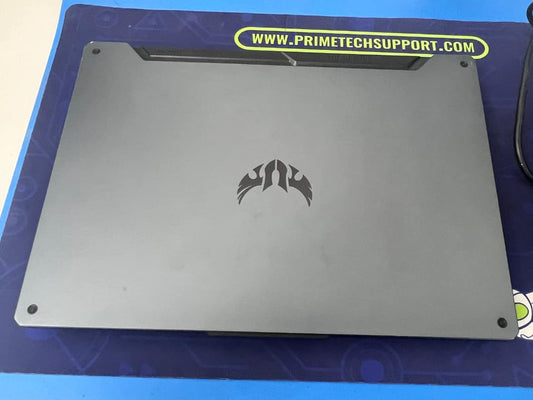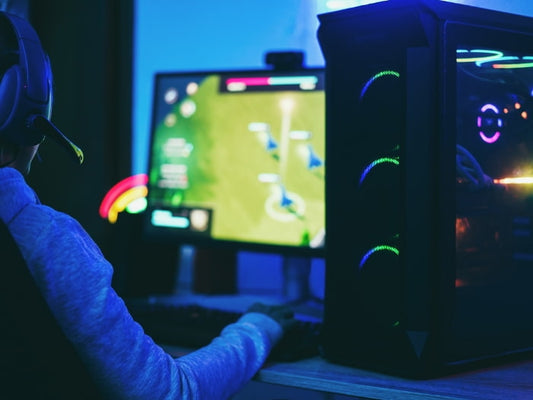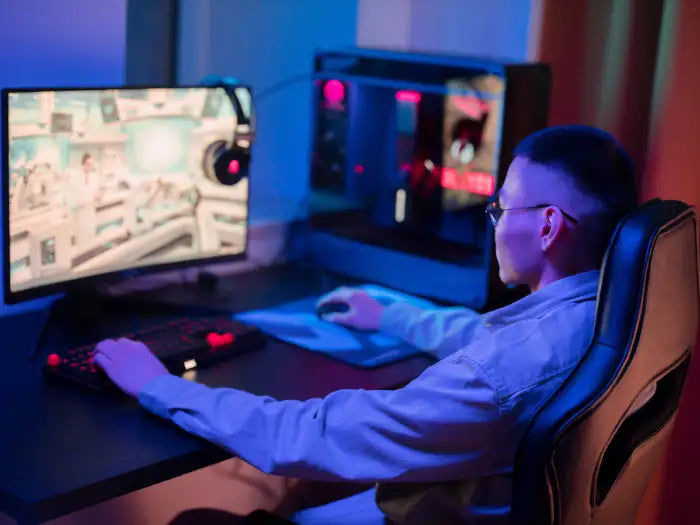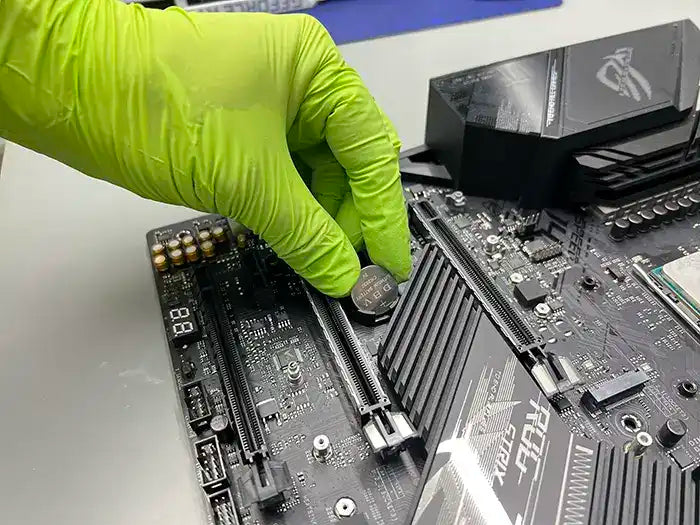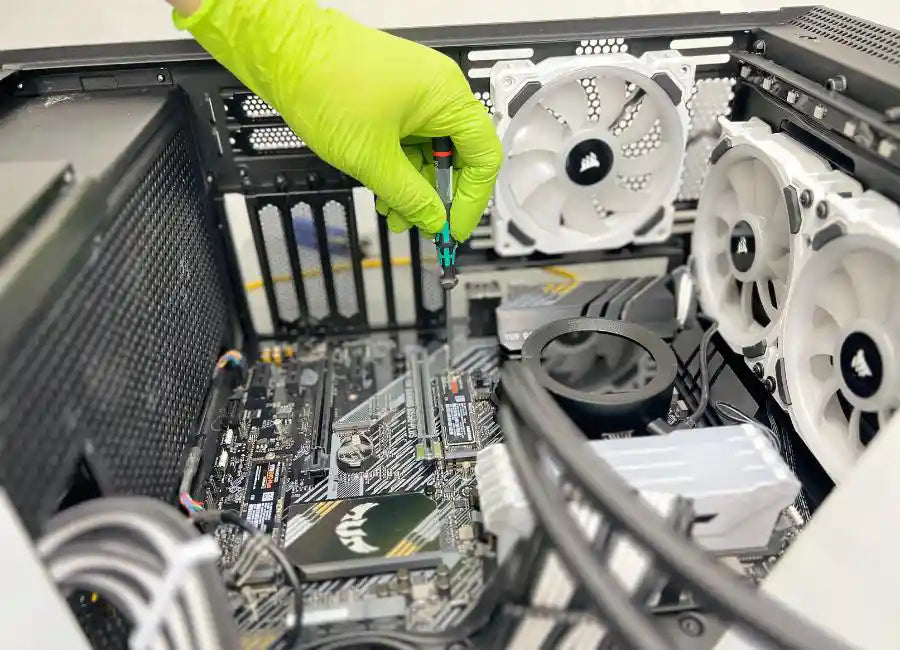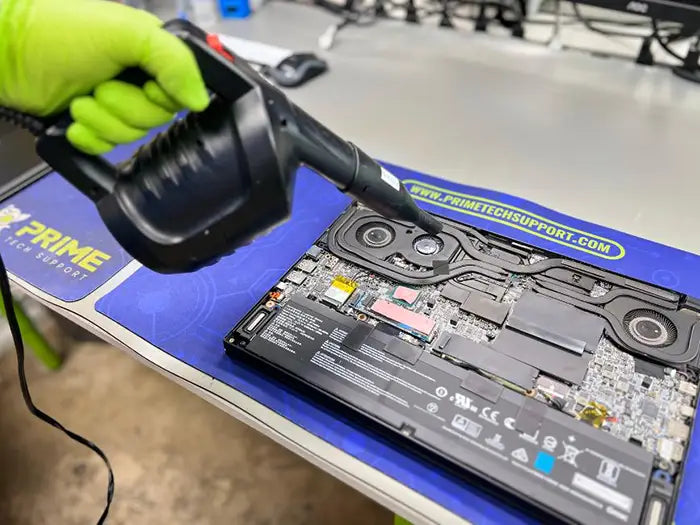PC Crashes While Playing Games: Problem Solved!
Table of Contents
What to Do If Your Computer Crashes
Experiencing a computer crash during an intense gaming session is an ordeal that many avid gamers can relate to. This article will explain to you the various reasons for gaming-related crashes and offer a comprehensive guide to solve them.
What to Do If Your Computer Crashes
Step 1: Stay Calm and Exit the Game
Exiting the game through regular means is the first step. If the game is unresponsive, resort to using Task Manager (by pressing Ctrl + Alt + Del on Windows) to end the task forcibly. This may prevent any further damage or data loss that could occur from an improper shutdown.
Step 2: Check for Updates
Software updates are a vital part of keeping your games and system running smoothly. Game developers and hardware manufacturers frequently release updates to improve performance and stability. Before diving into more complex solutions, ensure that your game, graphics drivers, and operating system are up to date.
Step 3: Restart Your PC
The classic advice of "have you tried turning it off and on again?" holds a surprising amount of wisdom. A simple restart can clear temporary glitches and is often the quickest fix for many issues.
Why Does My Game Keep Crashing? - How To Fix It
Reason 1: Corrupt Drivers
The first and fundamental step in maintaining or troubleshooting your PC's performance is to make sure that all of your drivers and the operating system are fully updated. This is a basic measure, but it's crucial as it can resolve a host of compatibility and performance issues. To solve Graphic Card issues, use Display Driver Uninstaller (DDU) to completely remove your graphics card drivers.
After running DDU, a fresh installation of the latest drivers from the manufacturer can ensure that your system is running optimally, free from conflicts or residual files that could affect performance. This clean-slate approach is often overlooked, but it is a simple and effective way to prevent and solve various system issues.
Reason 2: Windows Update

Source: Prime Tech Support
Ensuring your operating system is fully updated is crucial for the optimal performance of your games and applications. Windows updates can often include critical changes required for software features to work properly.
For example, specific updates may be necessary to enable advanced graphical features like ray tracing. For instance, you need to be on Windows 10 version 1809 to utilize Ray Tracing in Battlefield 5.
Therefore, it's important to check for and install any pending Windows updates to prevent crashes and other stability issues. While updates may not always directly fix a problem you're encountering, they lay the groundwork for troubleshooting by eliminating potential compatibility issues.
Remember, having a stable internet connection is essential when trying to download and install these updates, as interruptions can cause further issues. Always make sure your PC is connected to the internet to facilitate a smooth update process.
Reason 3: PSU: Power Supply Failure

Source: Prime Tech Support
The Power Supply Unit (PSU) is often suspected, as power issues can directly lead to sudden shutdowns.
It's a logical step to first examine the PSU connections, ensuring all connectors are properly seated, as loose or faulty connections could be the cause of the issue. If reseating the connectors doesn't resolve the issue, the next reasonable step might be to replace the PSU if you have a spare available.
However, if the problem persists even after replacing the PSU, it's clear that the PSU is not at fault. Although this might initially feel like a setback or a waste of time, it's a valuable process of elimination.
By confirming that the PSU is not the cause, you can redirect your troubleshooting efforts to other components, like the motherboard, CPU, or memory. It's a reminder that conducting systematic diagnostics, despite being time-consuming, are crucial for accurately identifying the root of hardware issues in a Gaming PC.
Reason 4: GPU Error
Monitoring temperatures and running stress tests are key strategies in diagnosing Gaming PC stability issues, particularly related to thermal performance. The difference between “current temperature”, or 'edge temp', and “junction temperature” on a GPU is crucial.
The “Current Temperature” shows the cooler areas of the GPU, often the edges. While the “Junction Temperature” indicates the hottest point on the die. This spread can reveal much about cooling efficiency.
For instance, a Current Temp of let’s say 50°C and a Junction Temp of 65°C, suggest excellent thermal management. You can check how we conduct thermal paste replacements at our Prime Tech Support YouTube channel.
Jay from, JayzTwoCents recommends stress tests like Heaven, or the newer Superposition. This is useful not just for pushing the system to its limits but also for observing how it behaves during load transitions.
Crashes often occur not during sustained loads but when the load changes and causes spikes in GPU frequency. These transitions can uncover underlying stability issues.
For thorough stability testing, Jay recommends extended runs, of sometimes hours, to ensure reliability under prolonged stress. Once a system passes one test, it's advisable to proceed with others like 3DMark, which, despite not being free, offers a robust stability test that loops a 3D benchmark.
If crashes occur at stock settings, this may indicate a hardware defect or improper installation of cooling components. Insufficient thermal pads on VRMs or memory, or poorly applied GPU thermal paste, can lead to hotspots and thus instability.
These are the kinds of issues that can be identified through meticulous testing as described by Jay, underscoring the importance of such basic diagnostics in maintaining and troubleshooting PC hardware.
Reason 5: Insufficient PSU
An underpowered PSU can lead to crashes during gaming sessions due to several factors. Gaming places high demands on system components like the GPU and CPU, which in turn require substantial power.
If a PSU can't provide the necessary power, the system may become unstable, particularly during power spikes that occur during resource-intensive processes.
Additionally, the PSU could overheat if it is pushed beyond its power rating, leading to crashes and potential hardware damage. An inadequate power supply might also fail to deliver power evenly across the system's components, which can affect performance and system stability.
Reason 6: Outdated BIOS
Resetting BIOS settings to stock is a critical troubleshooting step when dealing with system stability issues. Overclocking settings, while they can enhance performance, often push components beyond their standard operating parameters, which can lead to instability or crashes. This is particularly true if there's an incorrect voltage setting or memory timing configuration that the system cannot handle.
By restoring the BIOS to its default factory settings, you remove any overclocking variables that could be contributing to the problem. This includes settings for both the CPU and the GPU. If your GPU has been overclocked, it is also advisable to remove that overclock to ensure that it's not the source of the issue.
Returning all settings to their defaults creates a baseline for your system's performance, making it easier to diagnose issues without the additional layer of complexity that overclocking introduces. This approach helps to rule out potential causes systematically and ensures that you're working with a stable platform as you continue to identify the root cause of the system instability.
Reason 7: GPU Voltage Locked
GPU voltage issues can crash a system when the power delivered is either too low or too high, or if it fluctuates unpredictably. A GPU needs a consistent voltage to operate stably, especially under heavy loads like gaming or intense graphical tasks. If it receives insufficient voltage, it will likely crash or shut down to prevent damage.
Conversely, supplying excessive voltage can cause overheating and potential harm to the GPU. Quality power supplies are essential because they minimize voltage fluctuations—a common issue with low-quality PSUs (Power Supply) that leads to instability.
Additionally, any faults in the GPU's power delivery hardware, such as failing voltage regulators or capacitors, can disrupt its ability to maintain a stable voltage, resulting in crashes. Therefore, ensuring the GPU receives a stable and adequate voltage is crucial to prevent system crashes.
Reason 8: Defective Motherboard

Source: Prime Tech Support
The motherboard is the central hub through which all devices communicate. A defect in this critical component can manifest in a variety of malfunctions, including game crashes. Physical inspection for capacitor damage, burns, or odd smells can reveal issues. Furthermore, using diagnostic software to check the motherboard's health is recommended. Motherboard issues are complex and addressing them typically involves professional repair or replacement.
Reason 9. Testing RAM
Testing your system's memory is crucial when diagnosing PC crashes and stability issues, MemTest86 is a free utility for this job. You create a bootable USB with the software, restart your computer, and boot from this USB to start testing.
Accessing the boot menu varies by motherboard. For example, you might press F11 on an NZXT board to override the boot sequence. Once MemTest86 fires up, it thoroughly checks every sector of your RAM, ensuring all bits and bytes function correctly.
It's essential to run the memory at its XMP (Extreme Memory Profile) or DOCP (for AMD systems) settings, which you must enable through the BIOS. Manufacturers often fail to make this clear, leading to confusion when RAM runs at lower-than-advertised speeds.
The testing process, while time-consuming, is critical. One pass might give you a quick overview, but four passes offer a comprehensive check.
Conclusion
Banish game crashes to the past with Prime Tech Support's Gaming PC Diagnostic service. Throughout this article, we've tackled the various reasons for PC crashes while gaming and provided actionable solutions to keep you in the game. But for those who want a seamless, expert approach, Prime Tech Support stands ready to enhance your gaming sessions.
With our specialized Gaming PC Diagnostic Service, you can move beyond quick fixes to comprehensive performance improvements. Don't let technical setbacks cut your gaming short. Contact Prime Tech Support today and ensure your next gaming adventure is smooth and stable.
FAQ
Can A Bad Graphics Card Cause My PC To Crash On Games?
Graphics cards are central to rendering the visuals of your game smoothly and without error. If there's an issue with the card, such as overheating, driver conflicts, hardware malfunction, or insufficient power, it can lead to system instability and cause your PC to crash or freeze during gameplay.
Regular maintenance, driver updates, and ensuring adequate cooling can help prevent these issues, but if crashes persist, it might be time to consult with a professional service like Prime Tech Support for a thorough diagnosis and solution.
Can Ram Cause Games To Crash?
Crashes often occur when RAM sticks are faulty or damaged, as this leads to data corruption and system instability. Overclocking RAM without proper stability tests and voltage adjustments can also introduce crashes, much like incorrectly set timings in the BIOS.
Another potential issue is the use of mismatched RAM sticks, which can cause incompatibility issues that destabilize the system. Even something as simple as dust accumulation or RAM that's not seated correctly can result in poor contact with the motherboard, leading to game crashes.
Ensuring that your system has compatible, correctly configured, and clean RAM in the right quantities is essential for stable gaming performance.
Sources
- https://benchmark.unigine.com/superposition
- https://help.ea.com/en-tr/help/battlefield/battlefield-v/battlefield-5-directx-ray-tracing/
- https://www.youtube.com/watch?v=AkNEvIWp2fM&ab_channel=JayzTwoCents
- https://linustechtips.com/topic/569820-uefi-bios-screenshots/
- https://www.amd.com/en/support/kb/faq/dh2-020
- https://www.memtest86.com/
- https://primetechsupport.com/collections/gaming-pc-repairs/products/gaming-pc-computer-diagnostics
Articles You Might Be Interest In
Choosing UPS for a Gaming PC
Choosing The Right CPU Cooler: Keep Your Gaming PC Cool
Best GPU-CPU Combinations For Gaming 2023
SAME-DAY REPAIRS
Gaming PC Diagnostic
Fast tech support for Gaming Computers. We exceed customer expectations and ensure satisfaction.




